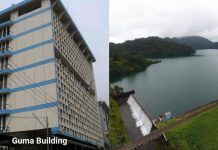Africa-Press – Sierra-Leone. IN SUB-SAHARAN AFRICA (SSA), land (place), community (people) and the way of life (culture) are inseparable. The reason is uncomplicated.
Traditionally, it is a people who turn space into place.
Without people occupying space, there is no place.
Spaces are enclaves of no human activity. However, the emergence of a place gives identity to a people. And together, when people embrace a place, a uniquely identifiable culture will evolve.
All of these have something to do with land because these three (place, people and culture) are founded on land. Put differently, land is the foundation for a place, the community, and culture.
For a community to be identifiable or recognisable, it must be cultural. Culture is the unique way of life of a people. It gives people their identity, enabling them to be recognised as unique.
One of the least talked about and written about aspects of community development in sub-Saharan Africa is the loss of cultures. Loss of culture means the total or partial disappearance of cultural identity.
It can manifest in the disappearance of the unique identities that hold communities together. It leads to a derecognition of a people. It dismantles the uniqueness of communities and their togetherness as a people.
There is a positive relationship between loss of culture, colonialism, and westernisation. Westernisation is a radical imposition of culture on non-Western parts of the world.
Colonialism is a tool of westernisation. Both colonialism and westernisation are processes that continue to put pressure on SSA communities. Together, they contribute to the disappearance of underlying distinguishing factors (people’s cultures) that make various communities unique and different from others outside Africa.
MAKING THE CONNECTION
What has this to do with land? Most cultures in SSA are land-based. Cultures related to local cuisines are sustained by the ability of communities to remain active in cultivating crops used for staple food.
Architecture depends on maintaining land availability and conserving forests and soils to ensure that traditional building materials are accessible for local housing. Cultures hinged on smallholder farming and forestry empower farmers to access livelihood opportunities. Cultures concerned with joint ownership of water bodies (e.g. streams, rivers, and lakes) influence how communities fish, gain access to and use water.
Cultures associated with land tenure (how land is held, accessed, used, and passed on from generation to generation) determine the potential for creating intergenerational wealth.
All these land-related cultures have consequences – from housing to food security, water security, livelihoods, and health and poverty.
Traditionally, communities with bountiful natural resources become rich. If people traditionally own (hold and use) land, they may preserve or promote their cultures. But if they can’t do that, they must depend on western land tenure systems.
In that case, their cultures die, and Western cultures take precedence.
They then face difficulties going forward as they must engage in land activities based on Western cultures (most times with their traditional mindsets). When African people practise Western land tenure systems with a traditional mindset (customary), attaining locally realistic development objectives becomes difficult. This is commonly seen in various parts of SSA today.
The rapid urbanisation of rural Africa has negative consequences too. In Nigeria, areas that own the natural resources that fuel the country’s economy are poor.
In Namibia, the Zambezi and Kavango regions, blessed with natural resources, are also poor.
In some Nigerian cities, local communities block streets to create venues for celebrations (e.g. weddings, traditional festivals and christenings) for lack of cultural spaces. This is common where governments have built roads on sites previously used as village squares.
ROOTS AND RIGHTS
These communities argue that they remain culturally rural even though urbanisation has hijacked their territory. They occupy urban spaces and infrastructure for rural objectives. Examples can be found all over Africa.
On the one hand, they indicate a shift away from customary systems caused by the destruction of the landowning cultures of many African countries by colonialism.
On the other, they reflect unplanned westernisation in the management of land and other economic machines that influence people’s living conditions.
This raises the issue of how land is the factor that allows a people to develop a sense of place.
Sense of place is a land-based attachment to a place involving local social interaction with neighbourhood effects that give meaning to human experiences.
It is the sense of attachment to land or place.
When this attachment is strong, the people are motivated to use their land and protect it as a heritage and promote their culture. However, they cannot do the same if it is weak because they no longer view the land as theirs.
The secure protection of communal land rights in Africa (by our governments) is critical for maintaining aspects of our traditional cultures.
This is because people can express these cultures proudly when their rights are protected in accessing, holding, using, and transferring land from generation to generation.
I neither imply that all cultures in SSA are land-based, nor that all our cultures lead to positive development.
What I am saying is that, concerning land, we should engage in cultural re-education (learning new ways to apply old cultures or new cultures), cultural diffusion (dumping traditional cultures that do not support the equitable development of our communities) and cultural renewal (reinventing traditional cultures to serve modern development objectives).
This way, we will be able to avoid or reduce further loss of culture.
* Uchendu Eugene Chigbu is an associate professor (land administration) in the Department of Land and Property Sciences at the Namibia University of Science and Technology. The views expressed in this article are entirely his own.
For More News And Analysis About Sierra-Leone Follow Africa-Press






